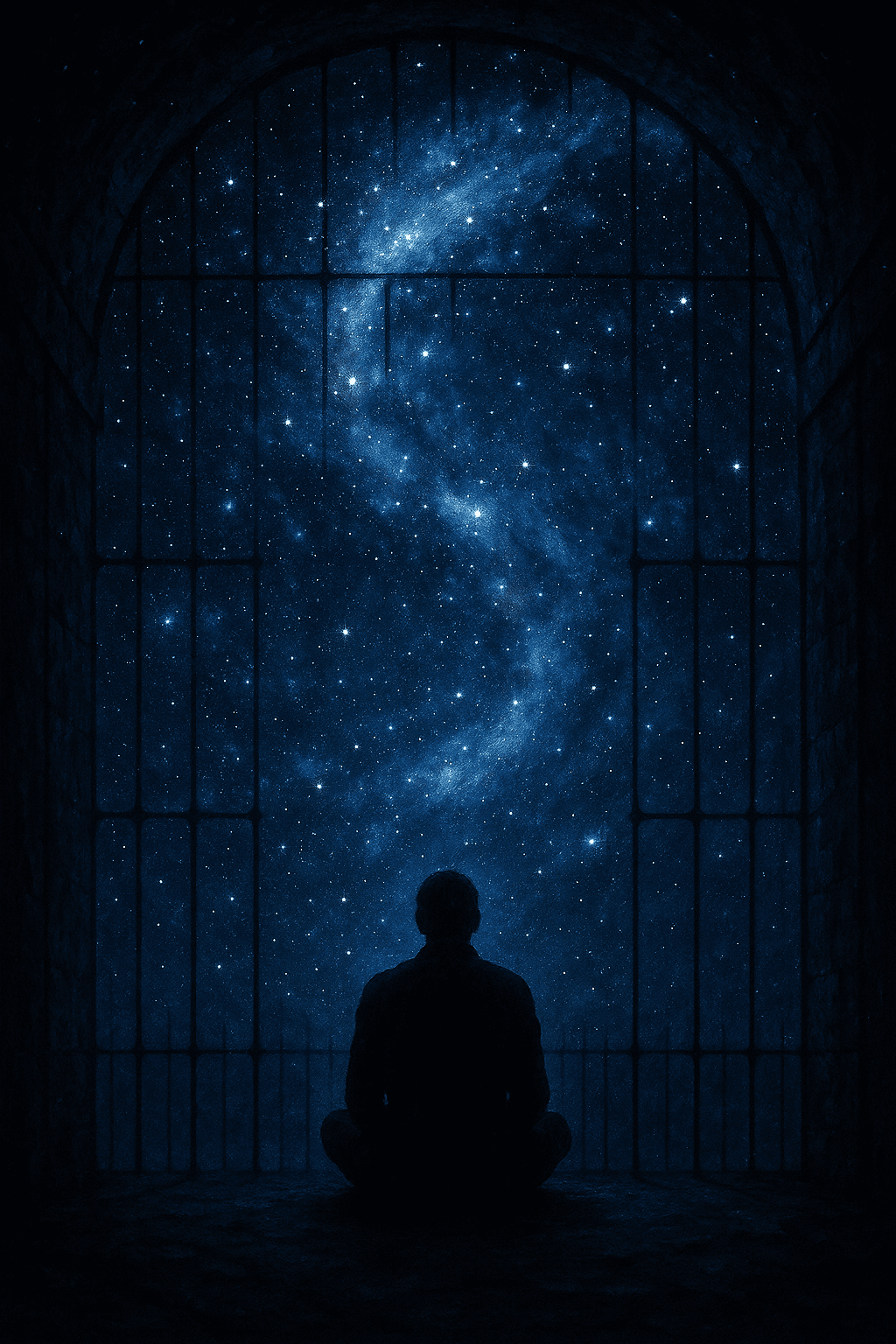Freedom and Confinement Beneath the Celestial Sphere

The starry vault of heaven is my prison. — Galileo Galilei
—What lingers after this line?
One-minute reflection
What's one small action this suggests?
Galileo’s Dilemma: Wonder and Constraint
Galileo Galilei, the trailblazing astronomer, famously advanced our understanding of the universe. Yet his observation—'The starry vault of heaven is my prison'—captures an irony: his boundless curiosity about the cosmos was met with the harsh restraint of his era. Galileo’s telescope opened vast new vistas, but his intellectual adventures collided with religious orthodoxy, essentially confining him within the very wonders he unveiled.
The Clash Between Science and Authority
This sense of imprisonment was not merely poetic. In 1633, after Galileo’s advocacy for heliocentrism challenged Church doctrine, he was sentenced to house arrest for the rest of his life. His metaphorical prison—the heavens he studied—was mirrored by physical and ideological constraints. The tension between the desire to explore and the powers that impose boundaries remains a recurring theme in the advancement of knowledge.
The Astronomer’s Paradox: Sight Without Escape
Despite being physically confined, Galileo could still gaze at the cosmos, his mind roaming where his body could not. Yet this access brought its own brand of frustration: the more he understood the universe, the more acutely he felt the limits of his personal and intellectual freedom. In this way, his 'prison' was built not solely of walls, but of the very stars that called to his scientific passion.
Echoes of Isolation in Scientific Pursuit
Galileo’s predicament echoes in the lives of later scientists whose revolutionary ideas isolated them—socially, professionally, or even literally. Gregor Mendel’s genetics work, misunderstood in his lifetime, kept him in intellectual solitude; similarly, Ada Lovelace’s early programming insights isolated her in a world not yet ready. Thus, the motif of the pursuit of knowledge leading to solitude is familiar throughout history.
From Cosmic Prison to Intellectual Freedom
Yet, the metaphor of the 'starry vault' as both a prison and a source of inspiration ultimately reflects humanity’s dual relationship with the unknown. While frontiers of knowledge can confine—by alienating or limiting the seeker—they also offer transcendence. Galileo’s legacy shows that, even confined, the mind can find freedom in the pursuit of higher understanding; his work continues to inspire those who challenge boundaries, undaunted by the vault above.